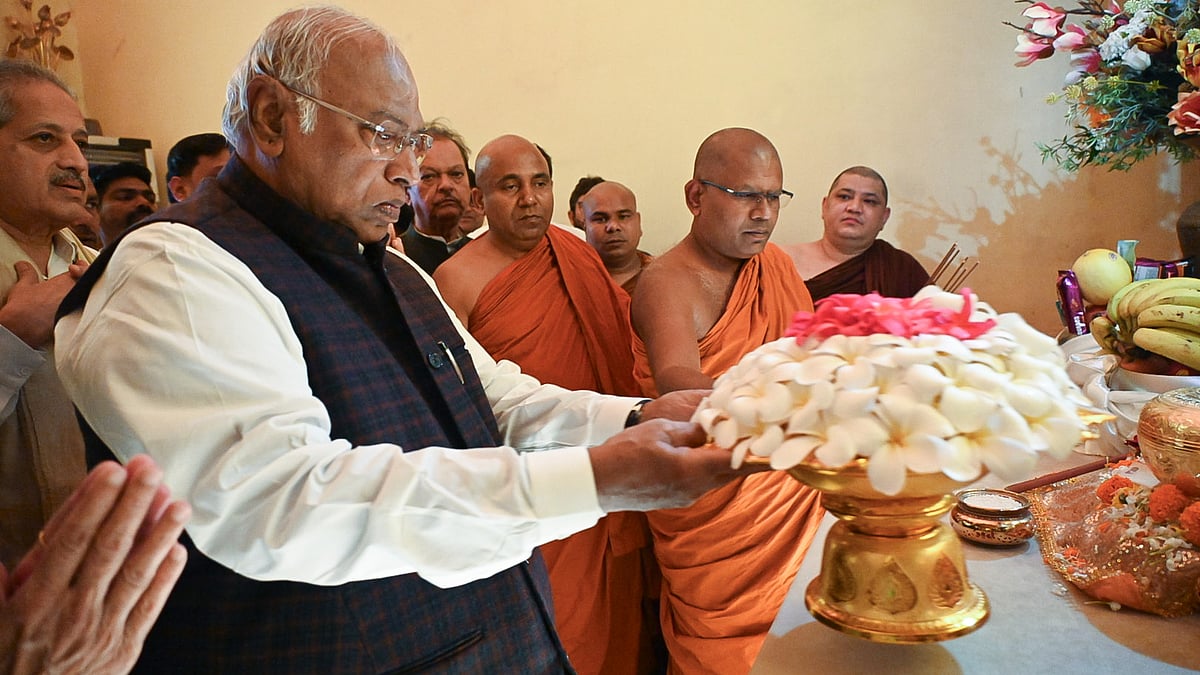POLITICS
Mahagathbandhan will free Bihar from 20 years of a helpless system: Kharge
Congress chief envisions a Bihar where migration ends, youth find hope, and every home has a job

As Bihar stands on the cusp of its decisive electoral moment, Congress President Mallikarjun Kharge struck a note of hope and defiance on Monday, vowing that the Mahagathbandhan (Grand Alliance) would liberate the state from what he called a “helpless system” that has shackled its progress for two long decades.
Taking to social media on the eve of the second and final phase of the Bihar assembly elections, Kharge painted a vision of renewal — a Bihar where migration ceases, the youth see light in their future, and every household finds dignity through employment.
“The Mahagathbandhan will free Bihar from the helpless system of 20 years. Now migration will stop, darkness will be removed from the future of the youth. Their future will be bright with every household job,” Kharge declared.
He pledged a government rooted in social justice and equality, promising to end injustice and restore the state’s pride.
Published: undefined
“Dalits, Mahadalits, tribals, backward and most backward classes, economically weaker sections, and minorities will get their rights. We will ensure the economic upliftment of women, farmers, youth, and every section of society,” he said.
Kharge’s message carried both resolve and reassurance — that the winds of change sweeping through Bihar would not merely shift power but transform the social and economic fabric of the state.
“The people of Bihar have set out to change the picture of the state. We guarantee — we will make it happen.”
Meanwhile, campaigning for the crucial final phase concluded on Sunday evening. On Tuesday, 11 November, 122 constituencies across 20 districts will head to the polls, marking the culmination of a contest that has tested alliances, loyalties, and leadership.
This phase follows the first round, which covered 121 seats across 18 districts, and will see 1,302 candidates — including 136 women — vying for victory across 45,399 polling centres. Nearly 3.7 crore voters, including 1.74 crore women, will decide the outcome.
In 2020, the BJP dominated these regions with 42 seats, trailed by the RJD with 33, JD(U) with 20, and Congress with 11. But the political map has since evolved: the BJP’s strongholds in Tirhut, Saran, and northern Mithilanchal now face a resurgent opposition, while the JD(U) retains influence in Bhagalpur, and the Mahagathbandhan eyes consolidation in the Magadh region — from Gaya and Aurangabad to Jehanabad and Arwal.
As Bihar readies itself for the ballot once again, one question looms over the dust and din of rallies — will the Grand Alliance’s promise of “nyay” and “nayi roshni” pierce through the years of disillusionment, or will history once again favour the familiar guardians of power?
With IANS inputs
Published: undefined
Follow us on: Facebook, Twitter, Google News, Instagram
Join our official telegram channel (@nationalherald) and stay updated with the latest headlines
Published: undefined